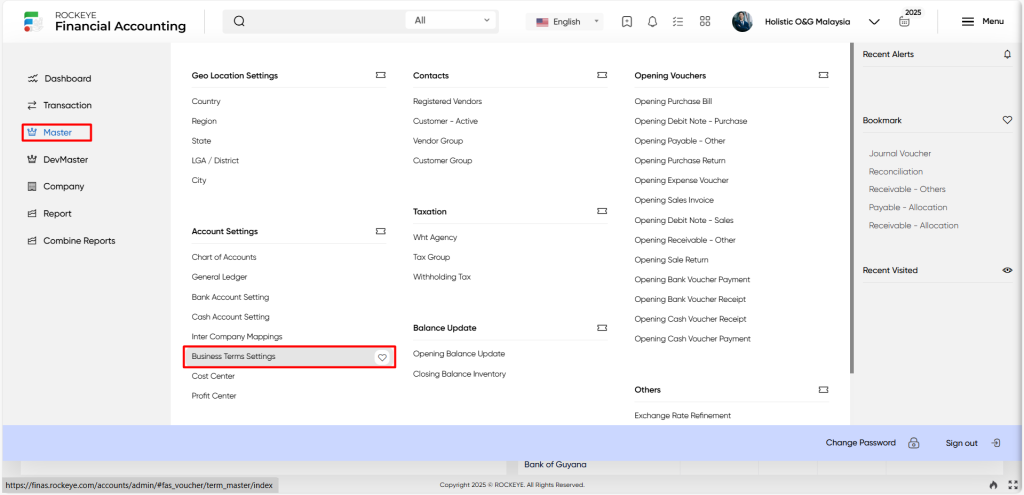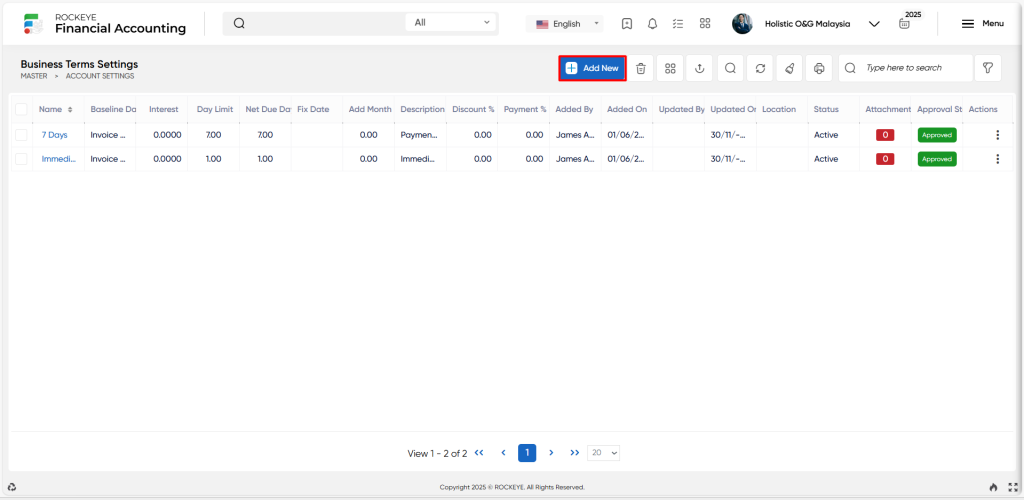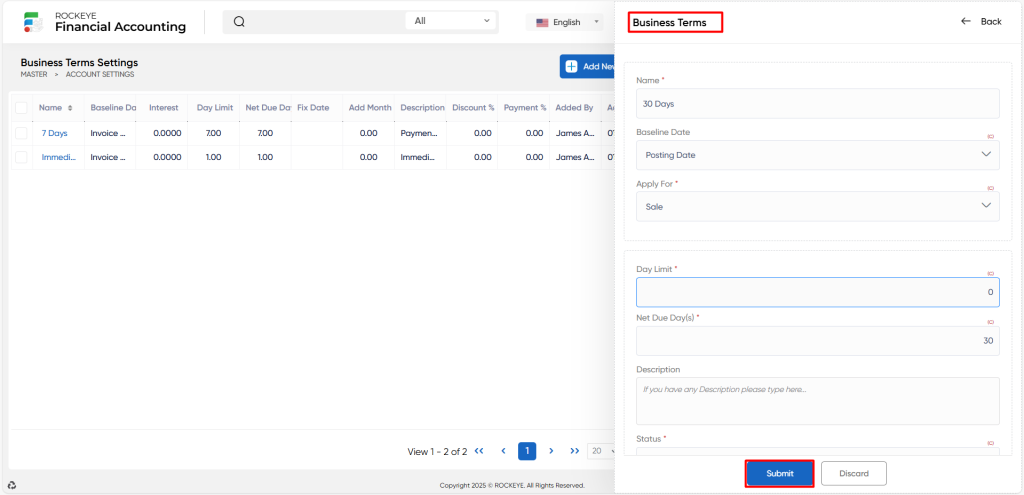Financial Accounting
Business Terms
Introduction/Purpose:
Business terms are specific arrangements or terms affecting payment and delivery timetables. Notably, the term “net due days” refers to the interval for settling payment following a transaction. These expressions have a large impact on the time and specifics of business transactions.
How To Navigate:
The navigation includes the following steps for viewing the business terms in the Financial Accounting system

- Click on the master tab: The master can be accessed by clicking on the master tab on the side menu.
- Click on the business terms: The business terms can be accessed by clicking it from the account section.
Listing:
A business terms listing in a Financial Accounting system is a feature which provides a list of all business terms.

- Users can view the following information in the business terms listing page
- Name of the business term
- Net due days
- Attachments and approval status
User can perform the following actions
- Add new: The “Add new” function allows you to create and add new business terms or entries to the system.
- Show/Hide column: The “Hide/Show columns” function used in the presentation of data that describes the ability to selectively reveal or hide particular columns or fields of information within a table.
- Export: The “Export” function describes the procedure of extracting or moving business-related data from one system or format to another for external use or analysis.
- Advance Search: The” Advance Search” function allows users to conduct more specific and refined searches within a system or application.
- Show all listing: The “Show all listing” function is to display and update a list or collection of business terms within a system or interface.
- Clear cache: The “Clear cache” function allows the user to the process of deleting temporary files, data, or stored information that is stored in a cache.
- Print records: The “Print records” function allows users to print content by opening a print dialogue or displaying a preview of the content to be printed.
- Search bar: The “Search” function allows the user to look for a specific entry within the available data and presents the results that match the search parameters.
- Quick search: The “Quick Search” function with column-based search functionality enables users to swiftly locate specific information within business terms.
Recording & Update:
Add New Business Term:

- Name: The “Name” refers to the descriptive label provided to the business terms, which clearly states the type of term it represents.
- Baseline date: The “Baseline date” refers to the starting point or initial date from which all other critical dates (invoice date, delivery date) are computed or decided.
- Apply for: The “Apply for” refers to the business term applicable to which thing, such as sale, purchase, or both.
- Description: The “Description” refers to the specific information provided about the business terms.
- Status: The “Status” refers to the current state of the business term, whether it is active or inactive.
- Day Limit: The “Day limit” refers to the maximum number of days allowed for a buyer to make payment after an invoice has been issued.
- Net due days: The ”Net due days” refers to the number of days that must pass following a particular occurrence, such as the date of the invoice or the receipt of goods or services, before a payment is expected to be made.
Users can perform the following actions
- Submit: The “Submit” function allows the user to submit the required information while creating new business terms.
- Discard: The “Discard” function allows the user to cancel the submission of information provided at the time of creating a new business term.